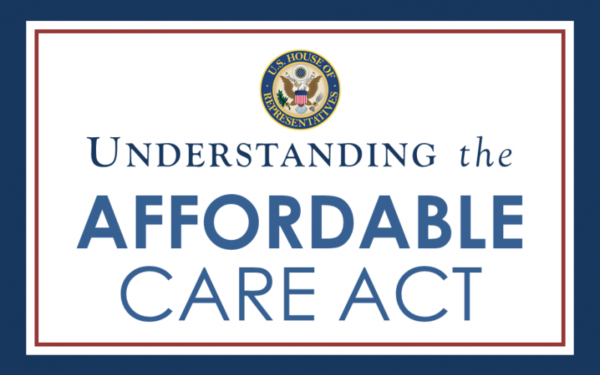In August 2015, thirteen states sued the U.S. Environmental Protection Agency (EPA) for violating the federal Clean Water Act. Rather than claiming that the EPA wasn’t doing enough to protect the nation’s waterways, the states were instead arguing that the agency was trying to do too much by seeking to protect more of the nation’s rivers and streams.
The Attorneys General for the states argued that the U.S. Constitution gives limited authority to the federal government to protect the nation’s waterways, and that the EPA’s actions – in seeking to bring more rivers and streams under the protection of the Act – overstepped that federal authority.
Doesn’t the federal government have the authority to protect all of the country’s natural environment, including all rivers and streams?
Which raises the obvious question – doesn’t the federal government have the authority to protect all of the country’s natural environment, including all rivers and streams? The Attorneys General who filed suit – driven by corporations who want to pollute waterways without federal interference – are arguing that it doesn’t, and that the Constitution itself limits the reach of the Clean Water Act and other environmental laws.
Unfortunately, they might be correct. At least one court has already agreed with them; and if the lawsuit ultimately succeeds, then the EPA’s latest attempt to protect the health of the nation’s waterways would be ruled to be unconstitutional.
Why the Constitution Isn’t What We Think it Is, & How the Environment and Civil Rights Were Left Out in the Cold
To understand how it might be unconstitutional to provide for the cleanup of rivers and streams, we must consider the background of the Clean Water Act itself.
In 1972, Congress adopted the Act, setting certain standards for water quality in the U.S. During the drafting of the law, congressional sponsors ran up against a problem they’ve encountered many times before – that while the U.S. Constitution provides specific congressional lawmaking authority in certain areas (such as taxes and national defense), it doesn’t recognize the authority of Congress to protect the environment.
This is because when the Constitution was drafted in the late 1700s, protecting the natural environment (as opposed to finding multiple ways to exploit it), wasn’t on the minds of the founding fathers – or almost anyone else for that matter.
Not only does the Constitution fail to provide for congressional authority in the area of environmental protection, it similarly fails to recognize congressional authority to legislate in the areas of civil rights, violence against women, or voting and worker rights.
While the founders were heavy on federal taxing and spending powers, armies and navies, and relations with other countries, Congress – as a guarantor of people’s rights – was an idea whose time had not yet come.
Of course, Congress has adopted civil rights, labor, and other rights-based laws. But in order to do so, it has engaged in a sort of legal flim-flam – by adopting those laws under a power the Constitution does provide Congress – the power to regulate interstate commerce.
Thus, to support its passage of the Clean Water Act (and other environmental laws), Congress was forced to use authority granted to it by the Interstate Commerce Clause, found in Article I of the Constitution.
Under the Interstate Commerce Clause, Congress has the authority to regulate commerce that occurs between the states. This means that Congress’s authority to pass the Clean Water Act – and other environmental laws – necessarily required treating the natural environment as commerce under the law. Otherwise, Congress was left without a platform to adopt and enforce laws to protect nature.
With the Clean Water Act, therefore, we find that it only applies to protect what are known as “navigable waters” – a phrase referring to waterways that are used for shipping and commerce which flow between states.
If it isn’t navigable, it ain’t commerce; and if it ain’t commerce, the federal government lacks the authority to regulate it.
Reasonable Birds
Congress has been forced to legislatively contort itself to fit under the Constitution’s commerce authority to protect the natural environment. Yet, its actions are nothing compared to the gyrations of the federal courts when asked to apply the limitations of interstate commerce to the nation’s environmental laws.
For example, the U.S. Supreme Court concocted a “reasonable bird” test for evaluating whether a waterway is “navigable” and therefore falls under the Clean Water Act’s protections. The Court has declared that if a “reasonable” bird flying between states would land on a waterway, then the waterway could be considered to fall under Congress’s interstate commerce authority, and therefore, could be regulated under the Clean Water Act.
If that all sounds farfetched, consider that Congress has been engaged in these legal games for over a century.
Civil rights and desegregation laws have been defended on the basis that they are an assertion of Congress’s authority to protect African-Americans as travelers in interstate commerce. One particularly distasteful (but clarifying) moment occurred during a 1960s oral argument in a U.S. Supreme Court civil rights case – African-Americans were discussed as “articles” of interstate commerce, thus falling under Congress’s authority to desegregate interstate travel corridors.
Fitting a round peg into a square hole has meant that civil rights, labor, and environmental laws all must explain, usually in the “authority” section of each law, how those laws are necessary to protect interstate commerce.
The National Labor Relations Act, for example, begins by declaring that the intent of the law is to eliminate “strikes and other forms of industrial strife or unrest which have the intent or the necessary effect of burdening or obstructing commerce.” The law then goes on to explain that the purpose of the law is not primarily to protect the rights of workers, but to prevent the “disruption of the market for goods flowing from or into the channels of commerce.”
The Affordable Care Act & the Commerce Clause
When courts interpret the reach of environmental, labor, civil rights, and other laws, they routinely examine the scope of congressional authority under the Commerce Clause that allows Congress to adopt them in the first place.
That’s exactly what happened in the main challenge to the Affordable Care Act. Lawsuits challenging the constitutionality of the Act focused on whether Congress had the authority under the Commerce Clause to require people to buy health insurance, as required by the Act. The Obama Administration’s defense of the law consisted of arguing that unhealthy people would create a burden to interstate commerce due to their inability to participate in economic activity. Thus, the Administration argued, Congress acted within its constitutional authority in adopting the law.
In hearing the case, the Supreme Court rejected that argument, declaring that Congress lacked authority under the Commerce Clause to adopt the Affordable Care Act. However, the Court saved the legislation by finding that Congress had acted within its lawful taxing authority, and thus, that the Act’s requirement to purchase health insurance was constitutional.
While the decision was held out to be a great win for the healthcare law – which it was – the Court’s ruling sent a signal of more ominous developments. That is, if the Court intended to restrict the reach of Congress under the Commerce Clause with regard to healthcare, that would, in turn, pull the rug out from under those civil rights, environmental, and labor laws that have been historically pinned to it. Thus, the Court’s decision on the Affordable Care Act could be considered one step forward, but two steps back – a doorway to a new jurisprudence that severely limits congressional power to adopt rights-protecting laws.
Transforming Nature from “Commerce” to “Rights-Bearing”
While most liberals are glued to the up or down nature of opinions from the courts, they don’t much care how judges arrive at them. That is, until the long-term erosion of gains makes it too late to understand how the ground has permanently shifted beneath them.
It’s time to come to grips with what the Constitution is, and more importantly, what it isn’t.
The critical question is whether we can protect the environment under a constitutional framework that requires Congress to treat nature as interstate commerce. If we cannot, then we need to change the Constitution that we have.
On the environmental front, that means a Constitution that finally recognizes ecosystems and natural communities as worthy of protection on their own, without screening them for their value to commerce and the economy.
Without waiting for others to arrive at that conclusion, a national movement is now bubbling up on its own. More than three dozen towns, villages, cities, and counties across the country have now adopted local laws which recognize that true environmental protection is only possible if nature possesses enforceable rights of its own to exist and flourish.
What began as a grassroots movement is now beginning to drive upward, with proposed state constitutional amendments, and a federal constitutional amendment, which would guarantee a constitutional right for communities to protect the rights of nature.
At one time in this country, of course, slaves were in the same position – considered “right-less” under the law. It took the Abolitionist Movement and the Civil War to amend the Constitution to transform slaves from being recognized as property under the law to being rights-bearing people.
Until we recognize the rights of nature in our federal and state constitutions, we will forever be dependent on the growth of commerce as an excuse to protect our natural environment.
Until we recognize the rights of nature in our federal and state constitutions, we will forever be dependent on the growth of commerce as an excuse to protect our natural environment. It’s time to sever that link and unplug the natural environment from the wheel of the commercial economy.
If we don’t, we will forever be constrained by a 1780s system of law that didn’t recognize the natural environment as being worthy of any protection at all.
Community Rights Paper #9: Drowning the Clean Water Act in the Constitution’s Bathtub
Visit here for more Community Rights Papers!




